Dr Charlie Teo’s critics accuse him of being a money-hungry, lone wolf who makes sexually inappropriate remarks. But what hurts most is the claim he doesn’t care about ‘bad outcomes’.
And now, decades on, and despite saving thousands of lives that others had given up on, Dr Teo is in a bitter fight for his professional reputation.
The medical board this week imposed a series of conditions on his practice after complaints about his methods and allegations he gave patients false hope. The hearings also came against a backdrop of media reports criticising everything from his behaviour and his success rates to what he charges patients.
Dr Teo says he is the victim of a unjustified witch hunt, his critics say he has operated as a law unto himself for too long. Dr Teo concedes “some really good people” tried to warn him against “alienating the establishment” early in his career but he didn’t listen.
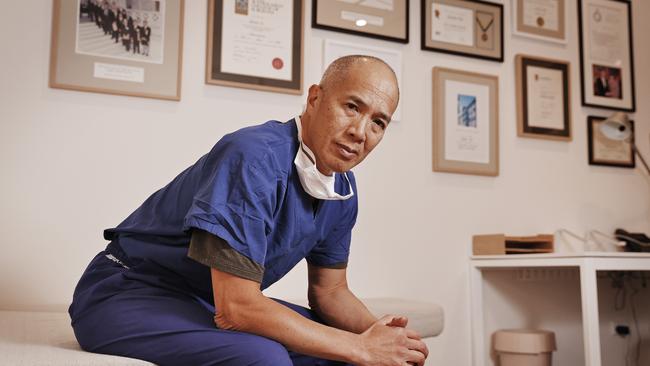
He says had he not been so “incredibly naive” his entire career, he might not be in the position he is today — a professional outcast.
A Sydney hospital chief once tried to help the skilled brain surgeon bursting with ideas to conform — to “fit the square peg into a round hole”.
Got a news tip? Email weekendtele@news.com.au
It was never going to work.
“Someone put up an X-ray up and said, ‘here’s a tumour that is clearly inoperable, and we think we should give them radiotherapy’,” Dr Teo recalls of a meeting of doctors discussing the best course of treatment.
“I put my hand up and said ‘No, that’s not right. I’ve done four or five of those tumour removals and they’re clearly operable, and I think it should be done’. They all looked at me, rolled their eyes and said ‘next patient’.”
“There’s a better way of saying it”, Dr Teo was advised.
“A more diplomatic way to talk to your peers.”
He tried but “it just didn’t come out right”.
“You can’t sort of pretend to be diplomatic when you’re not.”
Dr Teo admits his “big personality” and what he calls his BTA (Been to America Degree) set his peers against him right from the get-go.
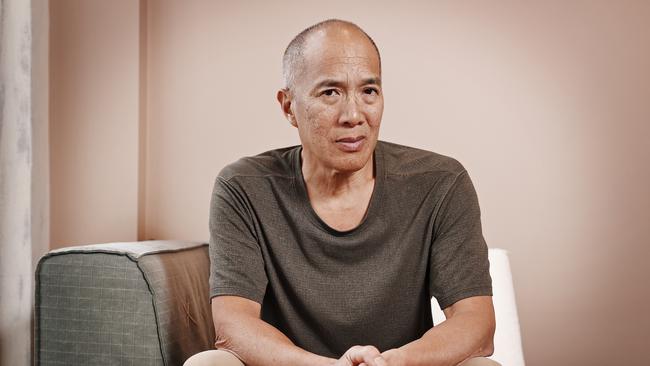
“It’s more common for Australian trainees to do a fellowship in the UK, so when you train in America, they sometimes feel threatened here, like you think you’re better than them. So that’s the first thing. And the second thing is I do have a big mouth. I’m no shrinking violet.
“When I disagree or disapprove of something, I make it known. There is no doubt I lack a bit of diplomacy when it comes to that.”
Dr Teo’s fall from grace — which included a public attack on his character and work ethic over the last 18 months — is a far cry from what he’s used to.
For almost 20 years he’s held almost celebrity status, operating on some of the country’s most high-profile people and effortlessly grabbing headlines for being a “life saver, miracle worker” even God-like.
He’s raised over $40 million for brain cancer research, funded research projects throughout Australia, opened a charity hospital in India, spent a week at a time in third world countries delivering his services pro bono and teaching doctors at prestigious hospitals all around the world.
For every detractor — most of whom remain anonymous — there are hundreds of patients and their families who will vouch for him on the record.
He has appeared in countless photographs with his famous patients and his cashed-up benefactors, carried out high-profile stunts to raise money for charities — including a nude swim — and hasn’t shied away from risk.
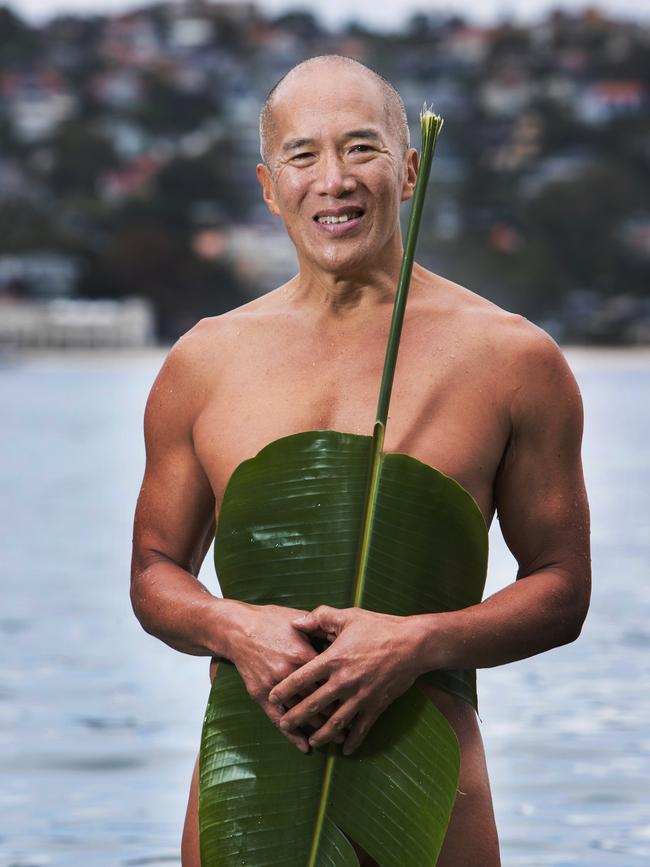
But in the high-stakes medical game, risk comes with a deadly downside and Dr Teo is no different, and he openly talks about the patients he has lost — or what he describes as a “bad outcome” — and they haunt him.
His descent publicly and professionally is complicated.
“It’s a combination of things,” Dr Teo laments. “There’s my often brash personality, my lack of diplomacy, the perception that I court the media, my overseas reputation … I guess it’s everything.
“I do understand some of the hatred … if I successfully remove a tumour that someone else has called inoperable, it makes the first surgeon look bad. They think it’s intentional but it’s not, I swear.”
For the last 18 months Dr Teo has felt like the blows are coming from all angles.
Doctors have raised concerns about “excessive fees” and patients having to crowdfund to afford his treatment, media reports have raised allegations of inappropriate behaviour in the operating room and among colleagues and concerns have been aired about Dr Teo’s reported links to underworld figure Mick Gatto.
The controversy crescendoed this week with the urgent hearing of the Medical Council and subsequent restrictions placed on the world renowned neurosurgeon. This is Dr Teo’s defence in the case of the surgeon versus the rest:
ALLEGATIONS OF INAPPROPRIATE BEHAVIOUR IN OPERATING THEATRES
In September 2019 allegations were raised about Teo’s “inappropriate conduct” including telling rude jokes and making sexually inappropriate comments including “While you’re down there …
Dr Teo admits to telling “bad jokes” in the operating theatre.
It was not uncommon for him to repeat the joke “While you’re down there” when a nurse would reach down to pick something up.
“I’ll be the first to admit that I said that. I’m not gonna step back from that. I’ll take that on the chin. But never again. I can see how things can be taken out of context.
“Yeah, I was a dinosaur. I used to tell bad jokes amongst my inner sanctum. In my defence, when you are totally focused on the job at hand, it’s difficult to think about being politically correct if it doesn’t come naturally.
“The nurse who I would joke around with has been with me for 12 years. She’s like my sister. My kids know her, we travel overseas regularly, she comes to most of my family dinners including almost every Christmas. I’m feeling a bit teary now because our relationship is that special. And she was devastated when that came out.”
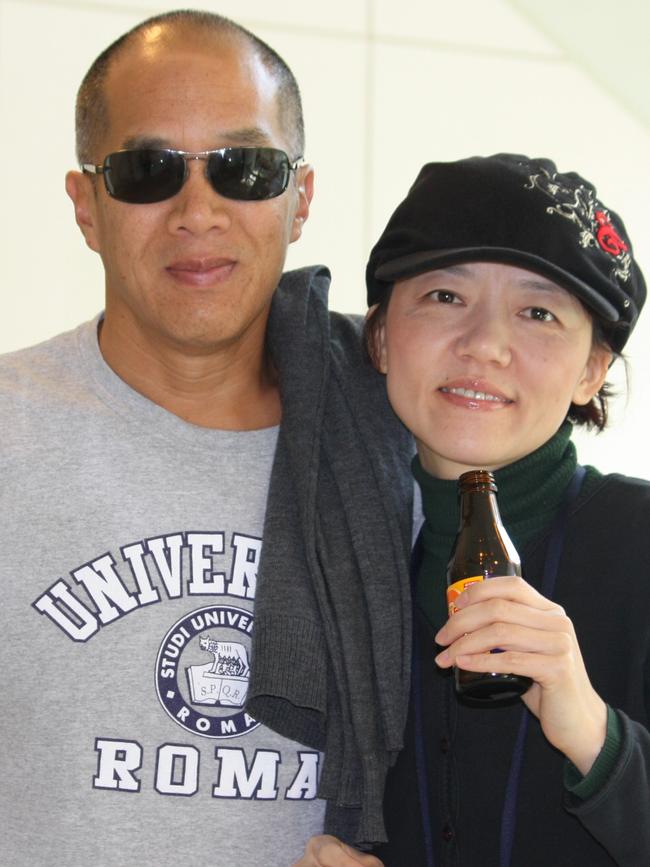
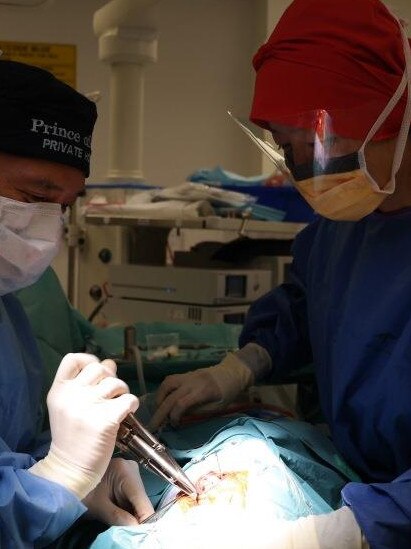
The nurse in question, Young Je, who has worked with Dr Teo since 2009, told the Saturday Telegraph she remembers the incident well.
“It was a joke and everybody laughed like always,” she said.
“He’s been like that all these years, I was not offended at all, everybody took it like that and the nurses, four or five of us were very surprised when we heard that it was in newspaper articles.
“I was wondering who would say such a thing. Sometimes some other people coming in and out of the operating theatre maybe heard? It wasn’t any of us. We are all close to Charlie, like family.”
Dr Teo is quick to add that the implication that he used his position of power for sexual favours was offensive and has never been and will never be the case. Another article cited an incident where he kissed a staff member on the cheek in the tea room as an example of impropriety. That particular staff member called him the next day claiming to be the person in the article and she was desperate to set the record straight that she was not offended by his actions, that “she was a good friend at the time and remains a loyal friend today”.
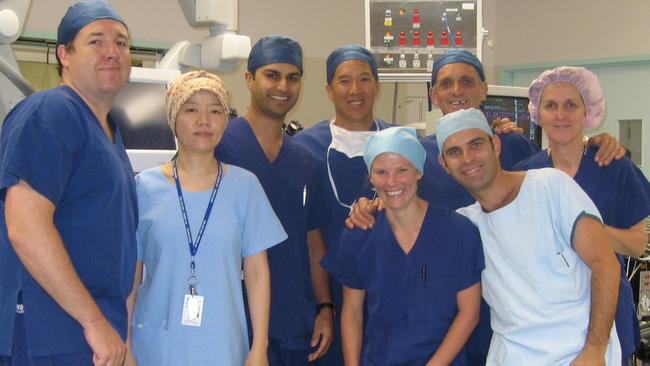
UNDERWORLD ‘CONNECTION’
Media reports have suggested Cure Brain Cancer Foundation Board tensions over Dr Teo’s links to underworld figure Mick Gatto was a major reason for the doctor’s dramatic split from the charity he founded.
“Mick Gatto and I are friends. I won’t deny it,” Dr Teo told the Saturday Telegraph. “I’ve visited his home. I’ve had dinner with him. And I would consider him a friend. He’s been nothing but courteous and charitable to me. He’s not duplicitous, more than I can say about many so-called better people.”
Dr Teo said he met Gatto after operating on his good friend’s mother.
“She had a tumour that was called inoperable. Mick’s friend asked if he could contact me. I had just returned from the US and I didn’t know who Mick Gatto was. I operated and took the tumour out and gave her eight extra years of life. Mick was incredibly appreciative so to show his appreciation he said he would like to do a fundraiser for me.”
ON BEING MONEY HUNGRY
One of the accusations thrown at Dr Teo is that he overcharges patients and doesn’t access enough the public health system. Dr Teo also struggles with the perception he lives a lavish lifestyle, charges exorbitant fees and must be driven by money.
“THIS is the one label I find most offensive. I’m not going to cry poor. I make a decent living but I do not worship or covet wealth,” Dr Teo said.
He claims that a quick perusal of his CV would verify his assertion.
“Firstly, I came back to Australia wanting to be a staff specialist, a salaried doctor. And that is on record. I never wanted to be in private practice. The only reason I went into private practice, was because after a year in the public system I was never given an office or issued a computer.
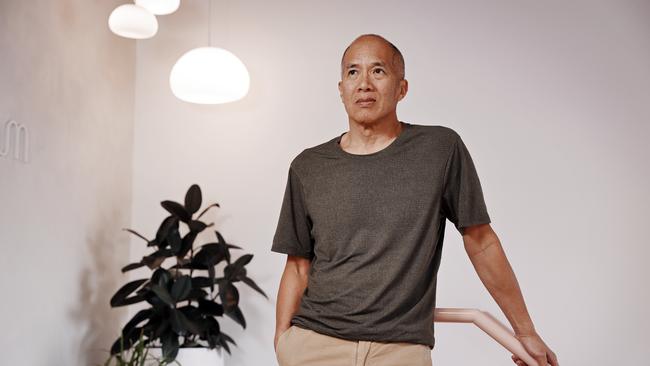
“I concluded that in private practice I could at least get enough money where I could do charity work and fulfil my academic responsibilities.
“Secondly, if you were driven by money, you wouldn’t spend four months every year, sometimes six months, every year, doing charity work overseas. You just wouldn’t.
“Thirdly, you wouldn’t work a four-day week for your entire career to spend time with your kids if your intention was to make more money.
“Fourthly, you wouldn’t spend two days a week setting up a charity to raise money for brain cancer research. Establishing and running a charity is incredibly time consuming.”
“Fifthly, you wouldn’t fund a pro-bono hospital in India out of your own money. Everyone thinks it’s my charity’s money. It was my own money that built that hospital in India.
“Sixthly, you wouldn’t pay for surgeons to come in and spend time with you from Cuba, Romania and Vietnam, and you wouldn’t sponsor them with your own money.
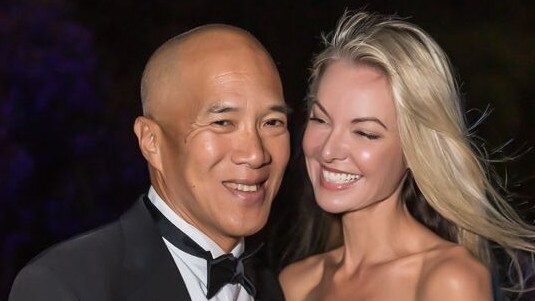
“Finally, if I was as money hungry as some would have you believe, please show me the spoils of my wealth? Show me that? I have been through a divorce, ride a motorbike, partner is constantly on my back about me wearing the same clothes until they are worn out. I live in a modest house in a modest blue-collar suburb.”
THE ‘BAD OUTCOMES’
Some media attention pre-2018 referred to Dr Teo as a miracle worker as patients, including celebrities, went public with their stories of successful surgery after other surgeons told them their tumours were inoperable. Dr Teo has been accused of only sharing the good outcomes.
Dr Teo fears people think ‘bad outcomes’ — or deaths and complications — for him are like water off a duck’s back.
“It hurts me almost as much as it hurts their loved ones,” he said.
“Try going to sleep at night after someone who had entrusted their life to you, on whom you were trying your very best, but who was now incapacitated, or no longer independent or who had died. It’s near impossible. It lives with you forever.
“I have never said that I am perfect or that I don’t get complications. When you play with fire, you’ll get burnt.
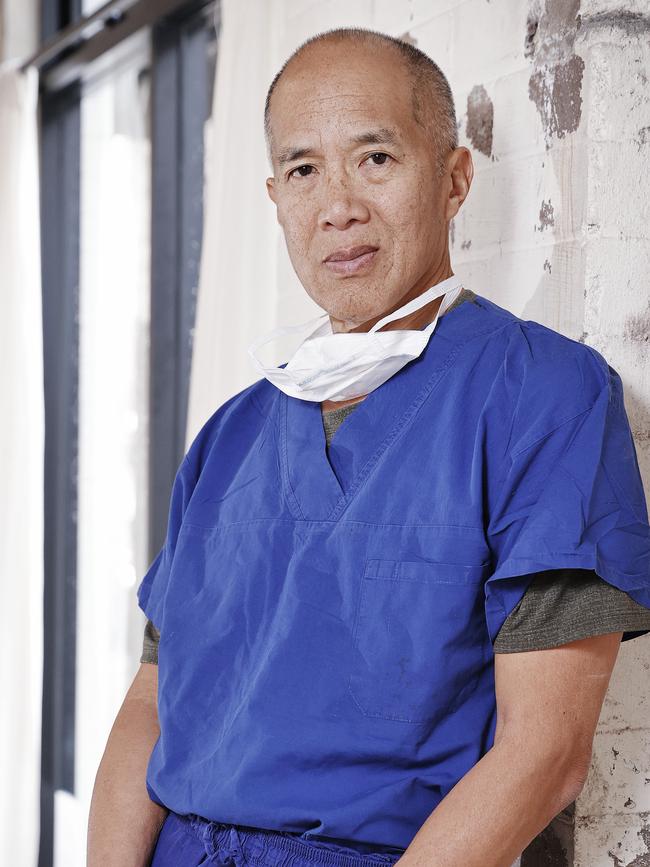
“I have certainly had my fair share. But what I don’t do is hide from them or not take responsibility. Indeed, I’ve got a reputation overseas for being the person who brings up complications the most.”
Professor Tseng Tsai Yeo, Chairman of the National University Hospital of Singapore, in which Teo operates, had this to say about his poor outcomes: “He is also surprisingly candid and honest about the mistakes he has done in the past and all the complications he has encountered in his surgeries, and he always makes it a point to tell us what not to do in order to avoid these problems in our own patients.”
Dr Teo has treated 11,000 patients over the last 35 years. He said during that time there have been two cases of litigation, one which was ‘thrown out of court’, the other settled by insurers, against Dr Teo’s opinion.
THE LONE WOLF
A recurring criticism of Dr Teo is his apparent unwillingness to collaborate with his colleagues. Dr Teo admits he is “on the outer” with the neurosurgery fraternity but says it’s not his own doing.
“THE fact that they blame me for acrimonious relationships with my fellow neurosurgeons is so, so wrong. I have tried for years to build ties with them, but with limited success. It’s very hard to be nice to someone who you have just been told by your patient, called you pretty nasty names and accused you of even nastier intentions.”
Dr Teo produced hundreds of testimonials from patients illustrating his claim.
One patient was told: “Dr Teo takes too high risks, and I would not let him operate on my own children.”
And another: “Teo will paralyse your son. There is no conceivable way he can remove that tumour.”
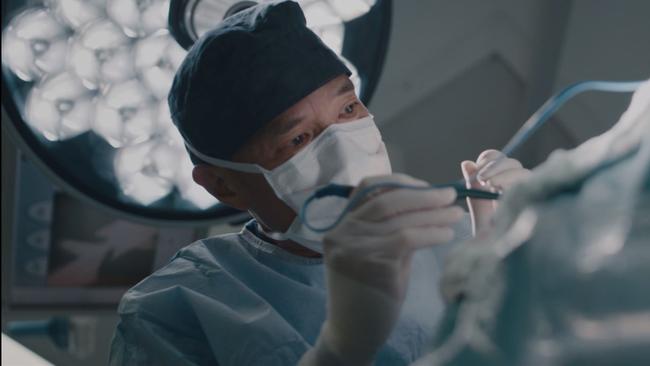
And this: He [Teo] takes too many risks and he will kill you.”
Dr Henry Woo tweeted that Dr Teo had 102 GoFundMe pages of patients wanting surgery. GoFundMe confirmed that at the time there were only three pages raising money for Dr Teo surgery. Others were for brain cancer research.
Dr Woo also accused Dr Teo of charging $120,000 for his surgery. After Dr Teo clarified that $80,000 went to the private hospital and the balance was split among several providers, Dr H said the breakdown was “improbable”. The Saturday Telegraph confirmed that $80,000 of the upfront payment of non-funded patients was for hospital costs.
Dr Woo questioned why Dr Teo didn’t perform the surgery in the public system.
Linda Buchanan from the Sydney Childrens’ Hospital Network confirmed in July 2020 that “Prof Teo has not held Operating Theatre Rights at the Sydney Children’s Hospital, Randwick since 30 June 2017.”
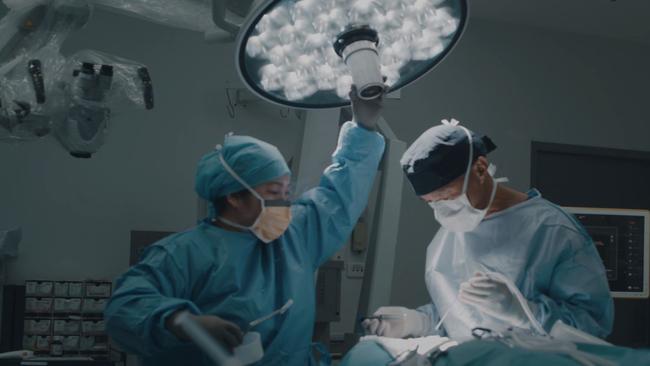
Dr Teo said he is constantly questioned about why he doesn’t perform surgery in the public system “because it fits with their narrative of me being a money-hungry person”. “For the last 20 years I have offered to operate on public patients in the public system, in their hometown for free. This would require their local neurosurgeon to invite me to operate there and in 20 years I have only twice been invited”.
Dr Aliashkevich, a neurosurgeon in Melbourne, defended Teo’s altruism: “I know Charlie only as a good colleague and appreciated his friendly help with one of my difficult brain cancer patients. He gave me very balanced advice and was prepared to spend a whole day travelling and assisting me here in Melbourne basically for free, in the best interests of my patient. Unfortunately, my hospital administrators denied him privileges.”
HIS WORK COLLEAGUES
While much of the criticism about Dr Teo’s manner, reluctance to collaborate and his “excessive fees” comes from other neurosurgeons, people who work closely with him, such as intensive care staff, nurses and other types of surgeons speak highly.
A SENIOR intensive care specialist has declared that if he ever needed surgery for a brain tumour he would only trust Dr Teo.
Dr David Bihari from Prince of Wales Hospital, has worked with Dr Teo for more than 25 years, seeing his patients at their worst — after brain surgery.
“When I met Charlie for the first time, the thing that struck me was that he was a completely different species from the normal neurosurgeon,” Dr Bihari told the Saturday Telegraph.
“The normal neurosurgeon seems to think that if a patient can wiggle their toes or stick their tongue out, that’s a good result.
“But Charlie was so much more engaged with his patients, more than any other neurosurgeon that I ever met.”
Dr Bihari said he had heard “all the gossip” about his excessive fees but no patient had ever complained to him.
“Since all this business all came out about him charging too much, I’ve been asking them about their informed financial consent, and no patient has ever complained to me that they think Charlie is charging too much money.”
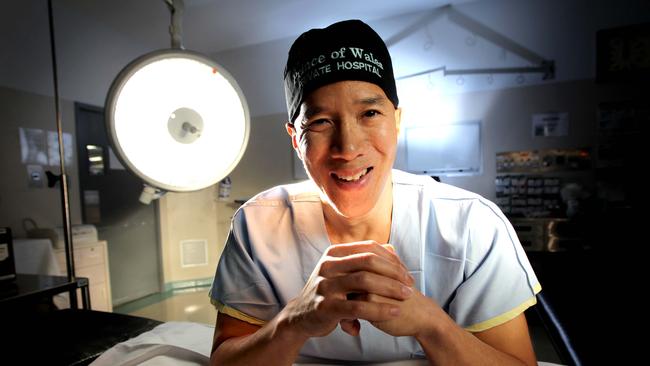
Dr Bihari said his 16-year-old daughter did a week’s work experience with Dr Teo in his clinic and the operating theatre.
“He was really good at talking to his patients, explaining the risks.
“He could be quite scary in the operating theatre because things can go wrong, but he was good fun. He told jokes, and sometimes he was a little bit sort of risque, from a 16-year-old’s perspective, but she never felt threatened.
“It was just good humour, you know, banter, which nowadays in the #metoo era life becomes much less fun, and Charlie gets crucified for it.
“But, you know, as far as I’m concerned, I felt completely relaxed about putting my 16-year-old daughter in his hands.”
Dr Bihari is well aware colleagues are against Dr Teo — but he says he’s his “own worst enemy” the way he gets his colleagues “riled up”.
“At the end of the day, Charlie is a great surgeon. And if I had a brain tumour. He’s the only guy I would want to operate on me.”
Professor of Otolaryngology (ENT), Richard Harvey, who has operated with Dr Teo on complex skull base cases, on and off, over the past 15 years, told the Saturday Telegraph he considers himself neutral when it comes to the controversy that follows the skilled surgeon.
Prof Harvey, who sees the patients before and after any conjoint surgery with Dr Teo, says he does not believe his colleague offers false hope.
“If a colleague offers someone an operation that others deem inoperable, then that shouldn’t mean that doctor is automatically offering unsubstantiated hope. That’s too simple an equation,” he explained.
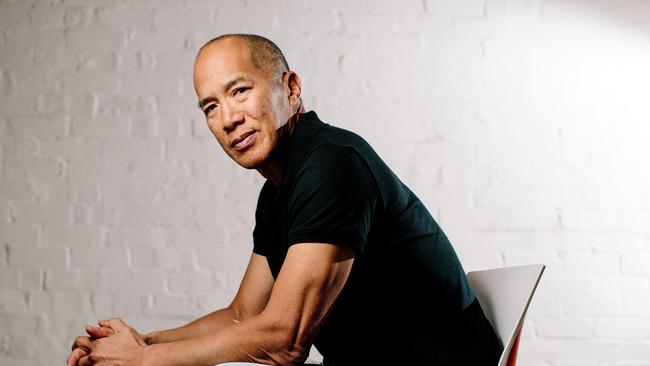
“Just because a surgeon disagrees with an opinion of an unlikely successful outcome does not mean you offer them misguided hope. For some, egos may be provoked when someone else is suggesting something they may have declined, the equation is complex when offering risky surgeries.
“In my experience I have seen some doctors get very upset if a patient chose to go through with a procedure with Charlie and often not knowing all the details.”
Prof Harvey said he believed Dr Teo, like many surgeons, has a coping mechanism where he possibly forgets some of his bad outcomes.
“Tumour surgeons couldn’t walk around constantly remembering all the terrible outcomes of people, particularly in his field, one couldn’t keep going. I think he is guilty of forgetting some of the less successful outcomes, remembering the wins, and interacting poorly with his colleagues with whom he has had a differing opinion.”
In regard to his behaviour in the operating room, Prof Harvey described Dr Teo as a larrikin who likes joking around. “His jokes have a sexist tone, he comes from a different era, but I have never seen him be inappropriate with people.”
Prof Harvey said Dr Teo, despite media reports, did not live an extravagant lifestyle, does not drive a fancy car or desire material gains.
FINAL NAILS IN THE COFFIN
Dr Teo didn’t want to discuss the three cases brought to the attention of the HCCC that lead to the Section 150 tribunal because the files have not been closed. Suffice to say that he remains devastated by the two poor outcomes “despite my best efforts” and acknowledges that “sometimes things don’t always go the way they are intended through no fault of anyone”.
“THE essence of all three complaints was that I was misguided in offering surgery to these three patients because others had deemed them inoperable,” he said. “I think it’s a very sad day for Australian medicine, if doctors, who are pushing the envelope in accordance with patient wishes, are ostracised, vilified and crucified.
“Don’t get me wrong, if you are going to do something that has not been validated in the medical literature, then transparency is paramount, in fact, mandatory. In all of these three cases the medical literature supported my recommendations to operate.”
The other issue was that of concerns with the pre-operative consent process.
“I am very cognisant of how vulnerable these patients and families are and offer informed consent accordingly.”
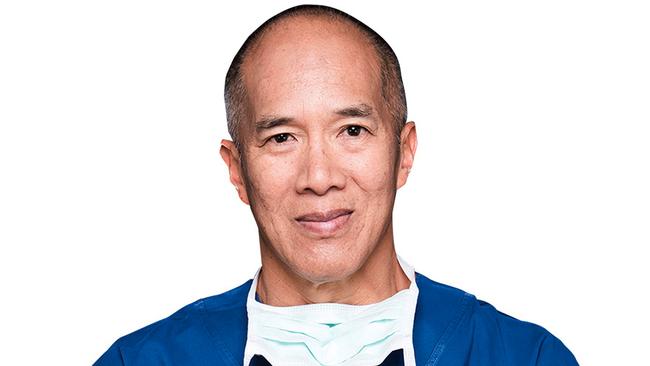
Prof Yeo has also been impressed with Teo’s patient interaction: “On the issue of informed consent, I must say my experience with him on this in Singapore has been very positive. The informed consent he took from patients in Singapore before their surgery was very honest and frank, with nothing to hide at all, with all the benefits and risks clearly enunciated, and which patients and their relatives greatly appreciated.”
A Stanford University professor was one of several doctors from around the world to give evidence in support of Dr Teo at the urgent hearing.
Dr Robert Dodd, Associate Professor of Neurosurgery, wrote to the medical board, stating he was aware the complaint centred around three of Dr Teo’s patients with glioblastoma who succumbed to their disease following surgical treatment by Dr Teo.
“I hope you are able to navigate through this investigation and find direction to see that Professor Teo is indeed a good and passionate physician, a master surgeon, and an Australian treasure”.
PATIENT PERSPECTIVE
A quick look at the Charlie Teo Facebook page and the Charlie Teo Foundation website and you can read hundreds of tributes from patients and their families who heap praise on the surgeon.
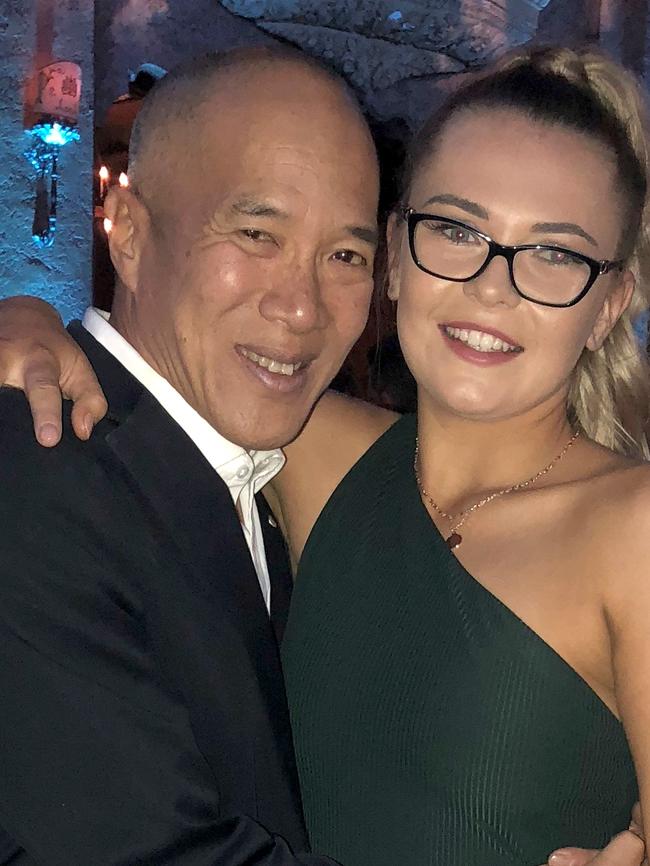
HIS office receives emails of support and thanks almost daily — and this week has been inundated after Dr Teo again hit the headlines.
Ciara Rose Nelson told the Saturday Telegraph when she was 16 she was diagnosed with an inoperable brain tumour.
“No one in Melbourne would operate on me, giving me a 40 per cent chance of living with chemotherapy and radiation,” she said.
“On March 5 2018, Charlie operated on me, removing one hundred per cent of my brain tumour and giving me a second chance at life. If it wasn’t for Charlie and his bravery, I would not be breathing today.”
One family of a patient who has since died wrote to many media outlets this week to complain about Dr Teo but when asked to detail the case and comment publicly the family member declined.
WHAT’S NEXT FOR AUSTRALIA’S MOST FAMOUS BRAIN SURGEON
“WHEN I told my girls that I’m probably going to give up neurosurgery my grown girls were crying. For the last 20 years of my life, they’ve seen me dedicate my life to my patients, arguably at the expense of them, my marriage and my health.
“Now for the Council to come in and say we have concerns about your surgical indications, we have concerns about your ability to communicate with patients, we have concerns about your professional isolation …. is soul-destroying. I will consider my options while overseas.”
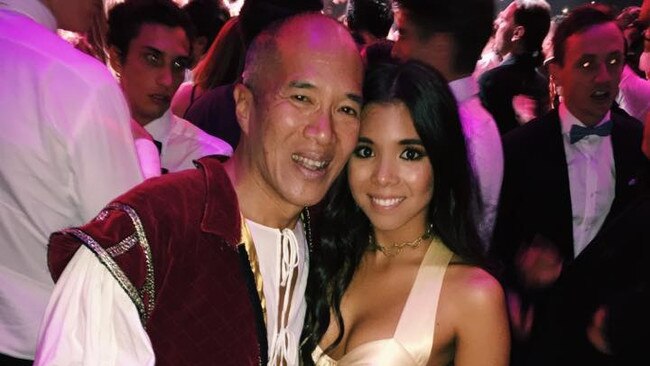
AND ONE LAST THING …
“THE message that I would like to get out there is this … I’m not a saint, but I love my patients, I treat them with respect and have always tried my best as a neurosurgeon.”
Got a news tip? Email weekendtele@news.com.au

Add your comment to this story
To join the conversation, please log in. Don't have an account? Register
Join the conversation, you are commenting as Logout
Named: Man denied bail after alleged stabbing
A 33-year-old man charged with allegedly stabbing a man in the chest in the state’s north has been refused bail.
Man charged with murder after northern NSW shooting
A man has been charged with murder after a bushland arrest near the Queensland border. It comes after a chaotic chain of events in which two men were shot, and one was hit by a car.